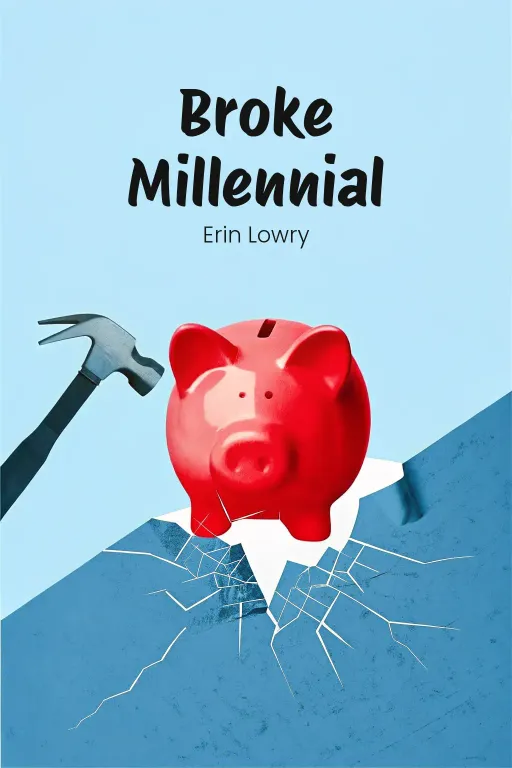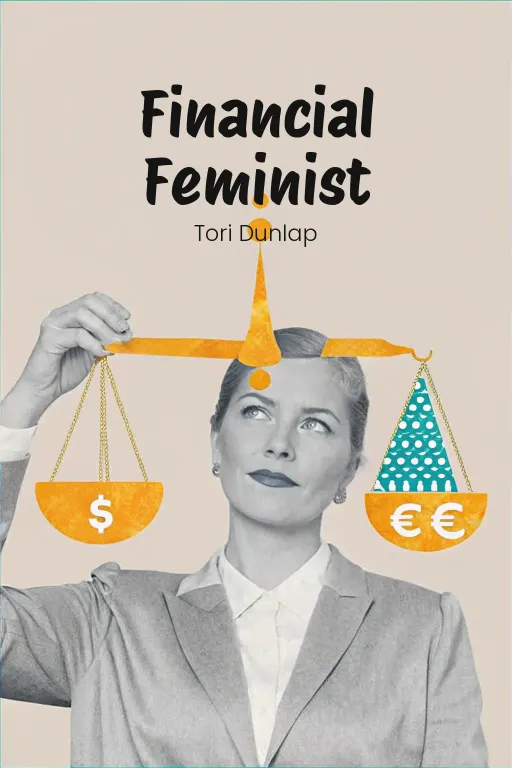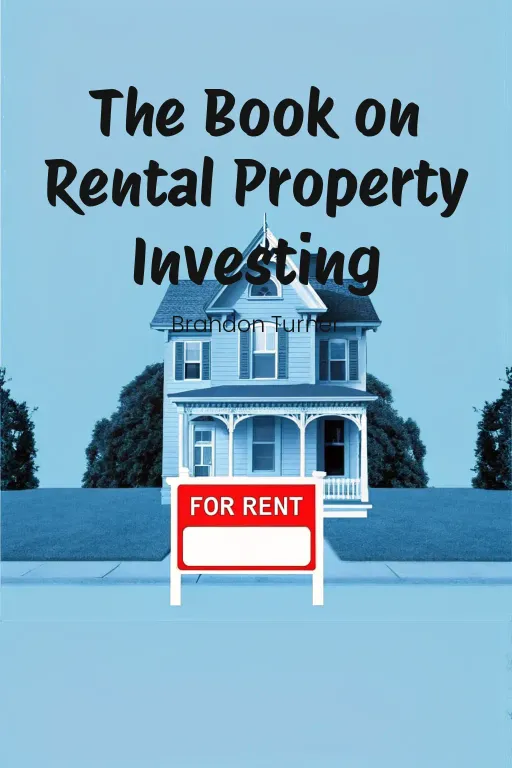
Debt-Free & Chill: Your Money Journey Starts NOW
Podcast by Let's Talk Money with Sophia and Daniel
Stop Scraping By and Get Your Financial Life Together
Debt-Free & Chill: Your Money Journey Starts NOW
Part 1
Daniel: How often do you find yourself totally stressed out by the idea of managing your finances? I mean, where do you even start? Student loans? Investing? Or is it, like, "Oh shoot, I need an emergency fund, like, yesterday!"? Sophia: Or maybe you're just struggling to make it to the next payday without maxing out your credit card again? Anyone? Daniel: Exactly! If any of that sounds familiar, then you're definitely in the right place. Today, we're diving into Broke Millennial by Erin Lowry. Think of it as the ultimate beginner's guide to getting your financial life together. We’re talking budgeting, tackling debt, starting to invest, and even navigating those tricky money conversations in relationships – all with a dose of humor and real-world advice. Sophia: Yeah, no BS here. Just a practical, straightforward guide for anyone who's tired of feeling like they're sinking in financial quicksand. I’d say it's like a user manual for "adulting with money." Daniel: Right, so here’s what we’re going to cover today. First, let's dig into your money mindset—basically figuring out what mental or emotional roadblocks are holding you back. Then, we’ll get practical—budgeting tools, and ways to actually manage your debt. Sophia: After that, we're thinking bigger picture: How do you grow your savings? And how do you start investing without needing a PhD in economics? Because honestly, who has time for that? Daniel: And we'll also tackle those potentially awkward social situations involving money—splitting bills with friends, maybe lending money... or even having "the money talk" with your significant other. Sophia: Last but not least, we’ll talk about the importance of lifelong financial learning—kind of like working out for your wallet. You can’t expect to run a marathon after just a few visits to the gym, right? Daniel: So, whether you're a complete newbie or just looking to level up your existing financial skills, there’s something here for everyone. Let’s embark on that journey from money stress to financial freedom, together!
Understanding Your Money Mentality
Part 2
Daniel: Okay, so let's jump right into understanding your money mentality. I think it's the most important step. Erin Lowry really makes a strong argument that before you even start with practical financial strategies, you need to understand the psychology and emotions behind your relationship with money. Sophia: Totally. And I love how she compared it to dating … either it’s a quick fling like a Tinder date, or the real deal like a marriage. It's so true, right? We all know someone who splurges on something flashy and then regrets it later when bills are due. Daniel: Exactly! It’s not just about reckless spending, but what’s causing it? Are you spending to avoid thinking about saving? Is it FOMO? Or just a lack of knowledge? Lowry’s friend Lizzie is a great example. She earned a decent income, but still lived paycheck to paycheck. It wasn’t that Lizzie was irresponsible, but her mindset, seeing money as something temporary, made her anxious. Sophia: Exactly, anxiety is key here. It's not always about how much you have, but the emotional stuff you’re carrying around. Lizzie reminds me how people think more money solves everything. Like, "If I just made an extra $10K, I'd be set!" But if you don't fix the underlying behavior, it just disappears. Daniel: Totally. That's why Lowry stresses this shift from short-term to long-term thinking. When you start treating money like "marriage material," you prioritize saving for emergencies or investing in the future. It's not about deprivation, it’s about building freedom. Sophia: But let's be real, that sounds great … in theory. In reality, it can feel impossible. Where do you even start if you've always seen money as scary or frustrating? What about people whose families fought about money all the time? How do you get past that kind of baggage? Daniel: That's a great point. Lowry does talk about how those early experiences “really” affect us. If money was a stressor growing up, it makes sense you'd want to avoid it or cope by spending. But avoidance doesn't fix anything. She suggests starting with awareness. How do those experiences affect your current behavior? Are you avoiding looking at your accounts? Spending to deal with stress? Sophia: And once you know those patterns, you can challenge them, right? Lowry gave a great example of people who avoid learning about finances altogether – too afraid to even look. Many of her friends said they felt overwhelmed or panicked even thinking about their bank balance,のでthey stayed in the dark. It's a vicious cycle—fear leads to avoiding, which leads to more anxiety. Daniel: Exactly. The good thing is, self-awareness breaks that cycle. Think of it like peeling back layers. When you confront a fear, it loses its power. Lowry suggests tracking spending and reflecting on your finances as first steps. They’re so practical—see where your money's going, what triggers your spending, and what your goals actually are. Sophia: Right, and then she talks about these money mentality groups, right? Like holding a mirror up to yourself. So, there's Team YOLOFOMO, the impulsive spenders who live for now and ignore the future. Sound familiar? Daniel: Oh, it's a millennial rite of passage! How many people justify splurging with "You only live once"? Experiences matter, but if you're just putting it on credit without thinking ahead? Not sustainable. Sophia: Exactly. Then, there’s Team Dreaming About Retirement. They're the ones who save like crazy but miss out on the present. Like, they have the emergency fund and the 401(k), but feel guilty about buying a latte. What's the point of security if you're not enjoying life? Daniel: Good point. And then there's Team Guarded Optimist. They mean well but think "it'll all work out later." They might put off saving or investing because they assume their future self will handle it. But time is huge when it comes to money. The earlier you start, the more options you have later on. Sophia: So, basically, all three groups need balance. YOLOFOMO could use some structure. Guarded Optimists need a reality check. The Dreamers need to enjoy their money a little. It's back to self-awareness—knowing where you are so you can build healthier habits. Daniel: Exactly. And that's why Lowry's methods—tracking spending and setting goals—are so powerful. Being honest about your habits is like a map. It shows you where you're starting and helps you move toward that life of freedom. Plus, tools like Mint or YNAB make it easier to match your spending to your priorities. Sophia: Okay, so we’re identifying bad habits, tracking money, maybe setting goals. But what about financial literacy? Where do you even learn this stuff if you think "compound interest" is something Einstein came up with? Daniel: True – education is the bridge between awareness and action. Lowry puts it so well: learning about finances is self-care. The more confident you become, the easier it is to make empowered, not fearful, choices. Sophia: Makes sense. And I like that she doesn’t offer a one-size-fits-all thing. It's not about turning everyone into savers or investment gurus—it’s about finding the habits that work for you and building a toolkit as you go. Seems like this discovery phase sets up everything else.
Budgeting and Debt Management
Part 3
Daniel: Okay, so once we’ve got a handle on our money mindset, the real work begins: taking control of our finances. That’s where budgeting and managing debt come in. That shift from understanding our habits to actually changing them can be tough, but it’s essential if we want to feel in control, right? Sophia: Exactly! It’s about moving from understanding why we have money issues to figuring out how to fix them. Lowry does a great job of laying out actionable steps for managing income, tracking expenses, and tackling debt in a way that feels doable. Let’s start with budgeting. Daniel, give us the lowdown. Because, let's face it, a lot of people hear "budget" and just shut down, thinking it's a life sentence of deprivation. Daniel: I know, right? But it doesn't have to be scary, especially if you think of budgeting as the foundation of your entire financial plan. Lowry says it all starts with tracking your income and expenses. That's step one: knowing where your money is coming from and where it's going. She suggests breaking your expenses down into fixed costs, like rent and utilities, and variable costs, like groceries or entertainment. Sophia: Sounds simple enough, in theory. But honestly, that's usually where I lose steam. I mean, who wants to spend hours poring over receipts or bank statements? Daniel: Seriously! And Lowry totally gets that. She knows initially it can feel overwhelming, but she stresses how vital it is for getting clarity. I love her tip about using digital tools. Apps like Mint or YNAB—You Need a Budget—can automate the whole thing. They categorize your transactions and generate reports that show exactly where your money's going. It’s like having a little financial assistant in your pocket! Sophia: Okay, but say someone actually bites the bullet and starts tracking. What’s the real payoff? What kind of "aha" moments can they expect? I mean, I’ve heard people casually say, "Oh, I know I spend too much on coffee," like it’s some universal truth. Daniel: The dreaded "latte factor!" But seriously, when you track your spending, you can have some major realizations. Lowry talks about Jamie, a young professional who always felt broke. But, after tracking, she realized she was spending $250 a month on eating out, coffee, and subscriptions she wasn’t even using! That small change in awareness allowed her to start an emergency fund without making any huge sacrifices. Sophia: Right, that's empowering! It’s like saying, "Okay, I don’t have to give up everything, but maybe I’ll skip that extra streaming service I never watch." What's interesting, though, is Lowry’s alternative for those who hate traditional budgets: the "No-Budget Budget." That sounds more like my speed. Daniel: It's a game-changer for those who find detailed budgeting too restrictive, absolutely! It flips the script by automating your essentials first. You set up automatic transfers for savings, cover your fixed expenses like rent and bills, and then whatever's left, you can spend freely. No guilt, no spreadsheets, no constant calculations. Sophia: Okay, I see how that would work for someone who hates micromanaging. But wouldn’t you need some serious discipline upfront to make sure those automated transfers are realistic? Daniel: For sure! It’s important to get those initial numbers right, yes. You can't just guess. You have to make sure you're putting enough toward savings and essentials before you start spending what's left. But for people who feel suffocated by traditional budgets, it offers peace of mind while still encouraging financial progress. Balance is key here. Sophia: Speaking of balance... let's talk about debt. A lot of people feel like the scales are permanently tipped against them there. Student loans, credit cards, medical bills… Debt can feel like you’re constantly swimming upstream. Daniel: Totally, and Lowry dedicates a good chunk of this chapter to explaining debt management. She focuses on two main strategies: the Debt Avalanche and the Debt Snowball methods. Both are designed to tackle debt systematically, but the approach depends on what motivates you more: logic or emotion. Sophia: Hmm, logical me thinks "Avalanche" sounds smarter already. But emotional me wonders if the "Snowball" is more aligned with my desire for instant gratification. Let’s break these down. Daniel: Okay, the Debt Avalanche method means paying off debts with the highest interest rates first. It’s all about efficiency, right? By focusing on those high-interest accounts, you save the most money over time because you're cutting down on how much interest accumulates. The catch? If that high-interest debt also has a big balance, it might take a while to see some real progress, and that can be discouraging. Sophia: And the Debt Snowball is about quick wins, right? You focus on paying off the smallest balance first, regardless of the interest rate, just to get those debts off your plate quickly. Like getting little gold stars for every victory? Daniel: Exactly. Paula’s story in the book is a perfect example. She had three credit card debts. Instead of starting with the card that had the highest interest rate, she tackled the one with the smallest balance – just $700. Clearing that debt gave her an immediate sense of accomplishment, which motivated her to stay focused on the bigger debts. It’s about what keeps you in the game. Sophia: So, it really comes down to personality. If you’re numbers-driven, Avalanche might be your thing. If you’re all about emotional momentum, Snowball could work better. Either way, they both drive you toward the same goal: becoming debt-free. Daniel: Right, and for people who feel like even those methods are out of reach, Lowry also offers insights into options like balance transfers and personal loans. But those tools require a lot of discipline. Take balance transfers, for instance. Yes, they can reduce or eliminate interest for a set period. But that’s only helpful if you avoid racking up new charges on the transferred balance! Sophia: Right, and there's the personal loan route – basically consolidating multiple debts into one payment. Might simplify things and lower your interest rate, perhaps. But stretching out the repayment term just to get a smaller monthly payment could actually cost you more in the long run, right? Daniel: Exactly! These strategies can ease some of the immediate pressure, but the real key is changing your relationship with money. Those solutions shouldn’t just be bandaids for deeper issues. Lowry's main message is that taking control of your money isn't about deprivation. It's about empowerment. Budgeting and debt management give you the freedom to align your spending with your values and goals. Sophia: And I think that’s where it all comes full circle, right? Whether it’s setting a straightforward budget or tackling your debt with specific strategies, the point is to be thinking long-term. These aren’t quick fixes; they're foundational changes that build a life of stability and choice.
Building Savings and Investing
Part 4
Daniel: Okay, so with a budget locked down and debt under control, we’re now moving towards building savings and really securing our financial future. This is a key moment in Lowry’s framework because financial stability becomes the base for wealth-building. We're talking about setting up structures that will support opportunities and freedom later on. Sophia: Exactly, and let’s emphasize "future," folks. What’s great about this part of the book is that it encourages readers to think beyond simply managing their finances day-to-day. You’ve got the basics covered, now how do you make that money actually work for you? Daniel: Right. And it starts with something Lowry mentions repeatedly: "Pay Yourself First." Saving isn't optional, it's not the leftover after everything else. It has to come first, like any other bill. Sophia: Alright, but let's play devil's advocate here. What if you have rising rent or an inconsistent income, and you're already strapped for cash? How do you actually "pay yourself first" without it just being wishful thinking? Daniel: Good point. It's really about automation and priorities. Lowry suggests automatically transferring a percentage of your income – say 10%– to a savings account when you get paid. Then you budget with what's left, instead of trying to squeeze savings in at the end of the month. This takes out the decision-making part, which is when people often get stuck. Sophia: So, trick yourself into saving automatically. But is there a risk with taking that 10% off the top if your budget is already super tight? Daniel: That's why starting small helps. If 10% seems impossible, start with $20 or even $10 per paycheck. Building the habit is the key here. Lowry talks about Jaime, who automatically saved $50 per paycheck. At first, she barely noticed, but after a year, she had a small emergency fund – Just from consistency. It's about those small actions adding up. Sophia: Emergency funds! It’s like a financial superhero – swooping in to save the day. Lowry breaks it down nicely: aim for three to six months of living expenses ideally, but start with a $1,000 goal if the bigger number feels overwhelming. Daniel: Exactly, because even $1,000 can make a huge difference. Lowry shares Paula’s experience, who had a $1,200 car repair. Because she had a $1,500 emergency fund, she covered it without credit cards. No debt spiral, no stress, just confidence. That’s what an emergency fund offers - financial and mental peace. Sophia: Yes, so much easier to stay calm when you’re not panicking, right? But where DO you find the money, especially if you're budgeting down to the penny already? Daniel: Lowry gives some practical tips, like "scraping" found money – tax refunds, bonuses, or even re-evaluating budget categories - and putting it straight into savings. She also says scaling back variable expenses, even temporarily, can free up money. It's not about deprivation, it's about short-term effort for long-term security. Sophia: Okay, so we're proactively saving each paycheck. But how about investing? A lot of people panic around that. "Invest? Where? How? Isn’t the stock market basically gambling?" Daniel: Totally understandable! Lowry starts with a reassuring idea: investing might seem scary, but it’s doable with the right guidance. The key, she says, is your risk tolerance and your time horizon. Sophia: Okay, explain "risk tolerance" to me like I’m five. Or, more accurately, like someone still scarred from the 2008 crisis. Daniel: Sure. Risk tolerance is your ability—or willingness—to deal with fluctuations in the value of your investments. For example, younger investors might have higher risk tolerance because they have decades to recover from any losses. On the other hand, someone nearing retirement might prioritize stable, conservative investments to protect their principal because they have less time to bounce back. Sophia: Makes sense. What if I'm the kind of person who freaks out the moment markets dip? Because I know myself—if my balance goes down even slightly, I’m probably selling everything out of sheer panic. Daniel: That’s actually one of Lowry’s main points: know yourself. If you react emotionally, start with low-risk, diversified options like index funds. An index fund spreads your investments across many companies, like the S&P 500, which reduces the risk of relying on one stock. They’re affordable, simple, and take the guesswork out of picking stocks. Sophia: Okay, I’m glad you brought up diversification. Every finance article yells, "Don’t put all your eggs in one basket!" Index funds seem like the perfect egg-splitting tool. Daniel: Definitely! Lowry makes them easy for beginners. She talks about Lucas, a software designer who started investing $200 a month into an S&P 500 index fund. He felt nervous about market dips at first but stuck with it, and, as the market recovered, his contributions started to grow. Sophia: Right, and that's the "long game" approach, right? Don’t panic during market ups and downs. Commit, keep contributing, and let time and compounding do their thing. And for someone really unsure, robo-advisors like Betterment and Wealthfront might be a solid start, managing portfolios for you. Daniel: Absolutely. Robo-advisors can make investing easier, they allocate and rebalance portfolios and optimize for tax efficiency - things most people don’t have the expertise or time to do. Sophia: Which leads us to retirement planning. Savings is your safety net, investing is how you grow, and retirement accounts are the long-term endgame. Lowry stresses how crucial it is to contribute to employer-sponsored plans, like 401(k)s, especially if there’s a company match. Daniel: That’s free money! Missing those contributions can cost you a lot later. Lowry talks about Aiden, who didn't contribute to his 401(k) for three years and missed out on company matches. It's a common mistake, especially for younger workers who aren’t familiar with retirement. Sophia: And what about expense ratios? Lowry mentions how high fees can quietly eat away at your nest egg. Luckily, places like Vanguard or Fidelity offer index funds with super low fees, so more of your money stays yours and grows. Daniel: Lowry’s core message is that building wealth takes time, but starting early, even small, can pay off big over time. Prioritizing savings, investing strategically, and using retirement accounts creates the foundation for long-term financial health. Sophia: And for procrastinators out there? Your future self will thank you for every dollar you set aside now.
Navigating Social and Romantic Finances
Part 5
Daniel: So, as your savings and investments grow, it’s really important to consider the social and relationship side of money. I mean, let's be real, money isn’t just numbers, is it? It’s wrapped up in emotions, expectations, and, yeah, those awkward conversations. That’s why we’re diving into navigating social and romantic finances today. Sophia: Exactly. I think this topic is, like, the emotional minefield of personal finance. You know, splitting bills with friends, figuring out shared expenses in a relationship – that kind of thing. It’s where money and people collide, and things can get… well, complicated. Daniel: Totally. Erin Lowry points out that the people side of money is just as important as budgeting or investing. How you handle these situations often affects your relationships, not just your wallet. Let’s start with friendships and that age-old problem of shared expenses. Lowry shares a story that I think a lot of us can relate to: that moment when you're out to dinner with friends and the bill arrives. Sophia: Oh, the dreaded "split the check evenly" scenario. Cue the awkward silences, the darting eyes, maybe someone pretending to calculate the tip just to avoid eye contact. So, what happened to Lowry? Daniel: She was at a dinner where some friends ordered all these expensive appetizers and cocktails, while she was trying to stick to her budget. When the check came, she was expected to pay way more than her share. She felt conflicted – she didn’t want to seem cheap, but it just wasn’t fair. Sound familiar? Sophia: Oh, absolutely. It's like a microcosm of bigger financial dynamics. You don’t want to rock the boat, but you also don’t want to feel like you’re funding someone else’s caviar dreams. And let’s be honest, friendships can involve people with very different financial situations. How do you suggest "separate checks" without, you know, alienating your friends? Daniel: Lowry has two main ideas: open communication and setting boundaries early. First, she says to bring it up before the bill even arrives – suggest separate checks from the start. That way, nobody’s put on the spot. Second, suggest budget-friendly alternatives, like potlucks or cheaper places to eat. Sophia: Okay, but what if you’re dealing with someone who always goes for the fancy stuff? Like, “Hey, let’s split that hundred-dollar bottle of wine I ordered without asking!” Subtle hints might not work there. Daniel: In those cases, Lowry says to be a little more direct, but in a positive way. Frame your boundaries in terms of your own goals. So, instead of saying, “I can’t afford to split the bill evenly,” you could say, “I’m saving for something important right now, so I’m ordering within my budget. I hope it's okay if we just pay for our own orders!" This way, you're focusing on your goals, not on their choices. Sophia: I like that – it makes clear you're not judging them, just setting your limits. But what about when there are unequal dynamics going on, like when you earn less than the rest of your friend group and they're always pushing for expensive things? It’s not easy to speak up, especially if you’re worried they’ll think you're a cheapskate. Daniel: That's a valid concern, and Lowry knows it. Avoiding the conversation will only lead to resentment or stress, which will eventually come out. Being honest about your financial limits is difficult, but it creates, or it can create, mutual respect over time. True friends shouldn’t have a problem with it—it could actually make the relationship stronger. Sophia: Alright, I’ll give you that – but friends are one thing. What happens when you bring romance into it? Because that’s where the financial dynamics can “really” take off. How do you start talking about money without scaring the other person away? Daniel: Romantic relationships are a whole different ballgame, and Lowry doesn’t hold back. She says the key is financial transparency – what she calls “getting financially naked.” This means talking about income, debt, and goals early on, so you can see if you're compatible, but without turning the first date into a full-blown credit check. Sophia: Hold on a sec. Early enough – but how early is early enough? Because “Hey, nice to meet you – what’s your 401(k) contribution look like?” seems… a bit much. Daniel: Definitely. Lowry suggests starting small and building up to it. Early in a relationship, you could share general insights about your financial priorities—like, “I’m saving up for a big trip” or “I’m trying to pay off my student loans.” As things get more serious, you could get into the specifics, like income or debt. She tells the story of Emilia and Alex to show how this worked in real life. Sophia: Let me guess – they avoided the discussion at first, and it got worse? Daniel: Pretty much. Emilia was a freelancer who was “really” focused on saving, while Alex, a teacher, liked to spend money on vacations and going out. They didn't want to cause conflict, so they didn't talk about their differences. But, as they got closer, the cracks started to show. Emilia got worried about Alex’s spending, and Alex felt like Emilia wasn't contributing to their trips. Sophia: Sounds like a recipe for a financial disaster. Daniel: Exactly. They finally had the money talk and – surprise – it wasn’t as bad as they thought. When they shared their worries and goals, they realized they could work together. They set limits for their personal spending and even started saving together for trips. Transparency became a foundation for their relationship, instead of a source of stress. Sophia: Okay, but I think a lot of people freak out about "financial transparency," especially if they're in debt or have made some financial mistakes in the past. They're worried people will, you know, judge them, like they’re admitting to something bad. Daniel: That's a real obstacle. But Lowry turns that idea around: transparency isn’t about admitting guilt, it’s about building trust. She says you should talk about these things calmly and show that you’re taking responsibility for them. It’s not about being perfect—it’s about being honest and responsible. Sophia: That makes sense. And once you get past the initial awkwardness, Lowry’s advice about working together is “really” smart. It's not just about who pays for dinner, it’s about dreaming up shared financial goals, like saving for a home, putting money aside for vacations, or trying to sync up your spending styles. Daniel: Exactly. Having a shared budget can “really” change things for couples. You know, they can use spreadsheets or budgeting apps to manage shared expenses so everything’s clear. There are even apps like Honeydue that make it easier to stay on the same page without, like, micromanaging. Sophia: So, whether it’s friends trying to split the bill or a partner with a different spending style, it all comes down to communication and collaboration. Money might feel like a taboo topic, but avoiding it only makes things worse. Daniel: Exactly– and that's Lowry’s main point. Whether you’re with friends or in a relationship, talking about money shouldn’t be off-limits. If you're open, respectful, and proactive, you can ease tension and actually make those connections stronger.
Continuous Financial Growth
Part 6
Daniel: So, ultimately, achieving financial independence means you're always learning and adapting. And that actually brings us to the core of Lowry’s philosophy: continuous financial growth. Sophia: Which, let's be honest, is the most important part, isn't it? This isn't a one-off fix. It's about building long-term habits and knowledge, so you’re prepared for whatever life throws your way. It's a constantly moving target which needs constant adjustments. Daniel: Exactly! And this chapter “really” nails something: you can't just reach financial stability once and call it a day. Life evolves, markets fluctuate, and your personal goals shift. So, your financial strategies need to evolve with you. Lowry makes a great point that managing your money is a lifelong journey of learning. Sophia: Right, and "growth" doesn't mean the same thing for everyone. Maybe it's creating new income streams, or maybe it's simply refining your current knowledge or finding better tools. So, let's start with the education piece. How does Lowry present this idea of ongoing education? Daniel: She sees it as essential. Financial literacy isn't something you achieve once; it’s a constantly evolving thing. Staying informed empowers you to grab unexpected opportunities and tackle challenges. She shares her experience negotiating a 40% salary bump, which is a fantastic example. She wasn't confident at first, but after researching industry standards and practicing her pitch, she landed the raise and gained a valuable skill she could use again and again. Sophia: Wow, that's a great story. It “really” highlights that learning isn’t just for a one-time win but about building skills, knowledge, and effort over time. So, what practical steps does she recommend for ongoing education? "Pay for another course?" Daniel: Well, that's where leveraging current tools and communities comes in. Lowry encourages using everything available to you, from budgeting apps like YNAB or Mint to financial blogs, and podcasts like this one, to expand your financial understanding. And she stresses that these aren't just for passively consuming information, but for active participation. They’re feedback loops that help you adapt as you move forward. Sophia: Budgeting apps are definitely a game-changer. They “really” do take away so much of the guesswork. But, Lowry also reminds us that you have to actually use them consistently. You can’t just download Mint today and expect results if you ignore it for months. Daniel: Absolutely, and that ties back to her main theme of automation. She suggests setting up automatic savings and retirement contributions to make things easier. Over time, you reduce the mental effort of constant decision-making. And when you combine automation with regular check-ins—like reviewing your finances monthly or quarterly—you stay updated without getting overwhelmed by the details. Sophia: Which, let's be real, is crucial for those of us who hate spreadsheets. She also makes a great point about resilience—because, let's face it, things don’t always go smoothly. Recessions, personal emergencies, or unforeseen events can throw your plans off course. What does she suggest for staying adaptable when things feel uncertain? Daniel: Her advice on resilience is simple but “really” insightful: build flexibility into your plans. She shared the story of her friend Lizzie, who coped with financial anxiety by focusing on gradual progress instead of perfection. Lizzie started making small, consistent changes, like creating her first budget and opening a high-yield savings account. That gradual sense of control “really” helped her overcome her fear of the unknown. Sophia: And the fear of the unknown is strong, especially when you feel like you're barely hanging on. It's interesting how Lowry frames resilience as not avoiding failure but preparing for it and learning how to bounce back. How do financial tools support that? Daniel: Well, tools and resources enable you to make adjustments without feeling lost. For example, Lowry recommends using retirement calculators on platforms like Vanguard or Fidelity. These allow you to adjust your savings strategy to reflect changes in your life, whether it’s an unexpected expense or a change in income. Sophia: And that adjustment is key, isn't it? Adapting! Recalculating your retirement contributions or temporarily reducing your spending. Being able to pivot isn't just practical; it’s liberating. Daniel: And speaking of pivots, Lowry also emphasizes the significance of financial communities. You know, those blogs, forums, and groups where people share their experiences, lessons, and strategies. They're fantastic for accountability and finding creative solutions to problems that others have already solved. Sophia: Plus, they stop you from feeling alone – because fighting those financial battles all by yourself can be rough. It’s reassuring to see others navigating similar situations. And unlike before, where financial knowledge was restricted, these communities make information accessible to everyone. Daniel: Absolutely! Lowry highlights how accessible financial education has become. You can learn about everything from categorizing expenses to investing in ETFs simply by following experts on social media or subscribing to their newsletters. It's like having a personal finance classroom in your pocket. Sophia: So, to summarize, ongoing financial growth means: always educate yourself, use tools to simplify your efforts, and turn to a community for support and inspiration. Anything else to keep in mind? Daniel: Lowry’s main message is simple: aim for progress, not perfection. Every step you take—automating savings, learning something new, or overcoming a setback—builds towards lasting financial well-being. It’s not about having all the answers. It’s about staying proactive, adaptable, and open to continuous learning.
Conclusion
Part 7
Daniel: Alright, that brings us to the end of our deep dive into “Broke Millennial” by Erin Lowry. We really covered a lot, didn't we? From understanding your money mindset to budgeting, tackling debt, building savings, navigating relationships, and really viewing financial growth as a continuous journey. Sophia: Absolutely. And if there’s one key takeaway here, it’s that becoming financially empowered isn't an instant thing. It really starts with understanding yourself—your habits, your psychology around money. And then building on that with consistent, small steps, like setting up automated savings or just paying a little more attention to where your money goes. Daniel: Precisely! What's great about Lowry's approach is that it's not about finding some perfect, rigid system that everyone has to follow. It's really about finding what resonates with you and sticking to it. Maybe that's aggressively paying off high-interest debt, starting with some basic index funds, or just having an open, honest conversation about money with your partner. Whatever works! Sophia: So, let's think about this: what's one small step anyone listening can take today? It could be downloading a budgeting app, setting up that automatic transfer we mentioned, or simply spending some time thinking about where your attitudes towards money come from. Remember, it's all about those small actions leading to significant change. Daniel: Exactly, and as Erin Lowry points out, financial independence isn't just about the money itself. It's about freedom —the confidence, the opportunities, and, really, the peace of mind it creates. The most important thing is to begin wherever you are, with whatever resources you have available. Sophia: Couldn't agree more. It's progress, not perfection, right? Keep learning, keep adapting, and sooner or later, you'll be well on your way to building a financial future you can actually be proud of. Thanks for tuning in, everyone—now go out there and make it happen!









